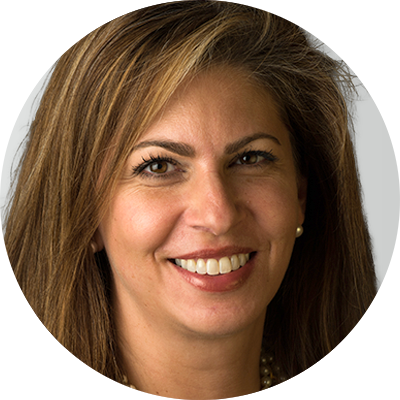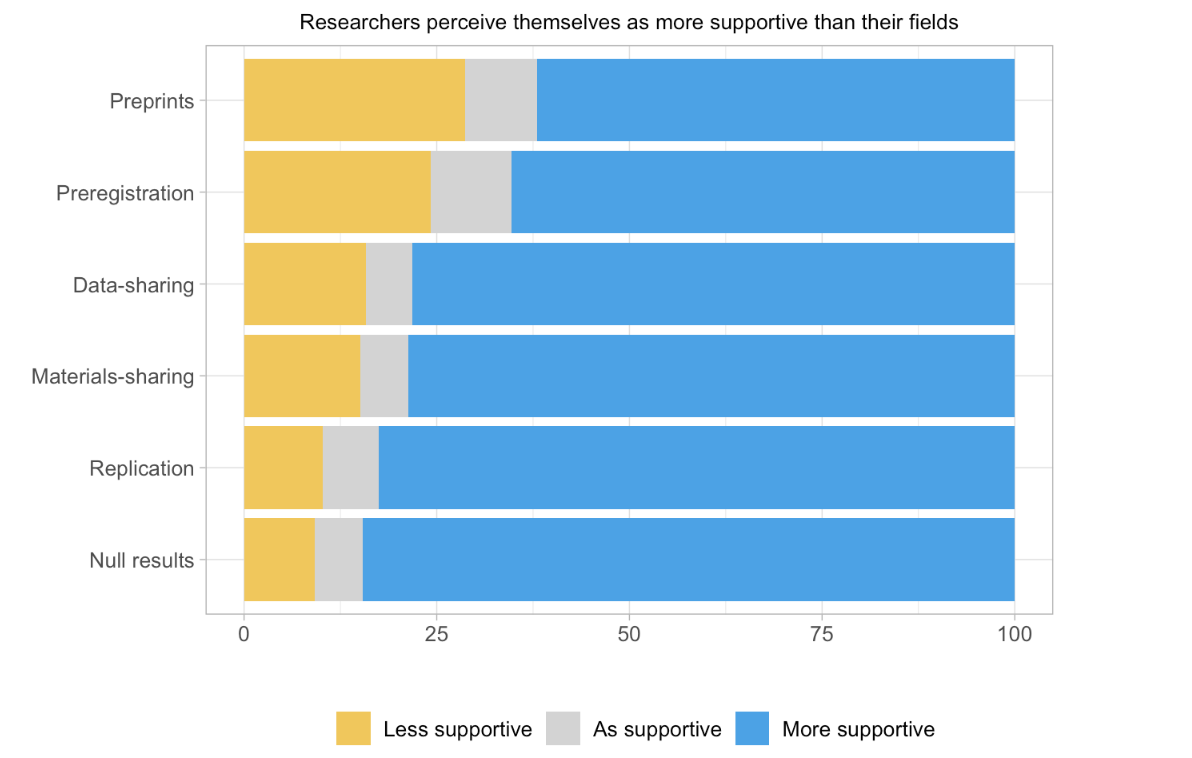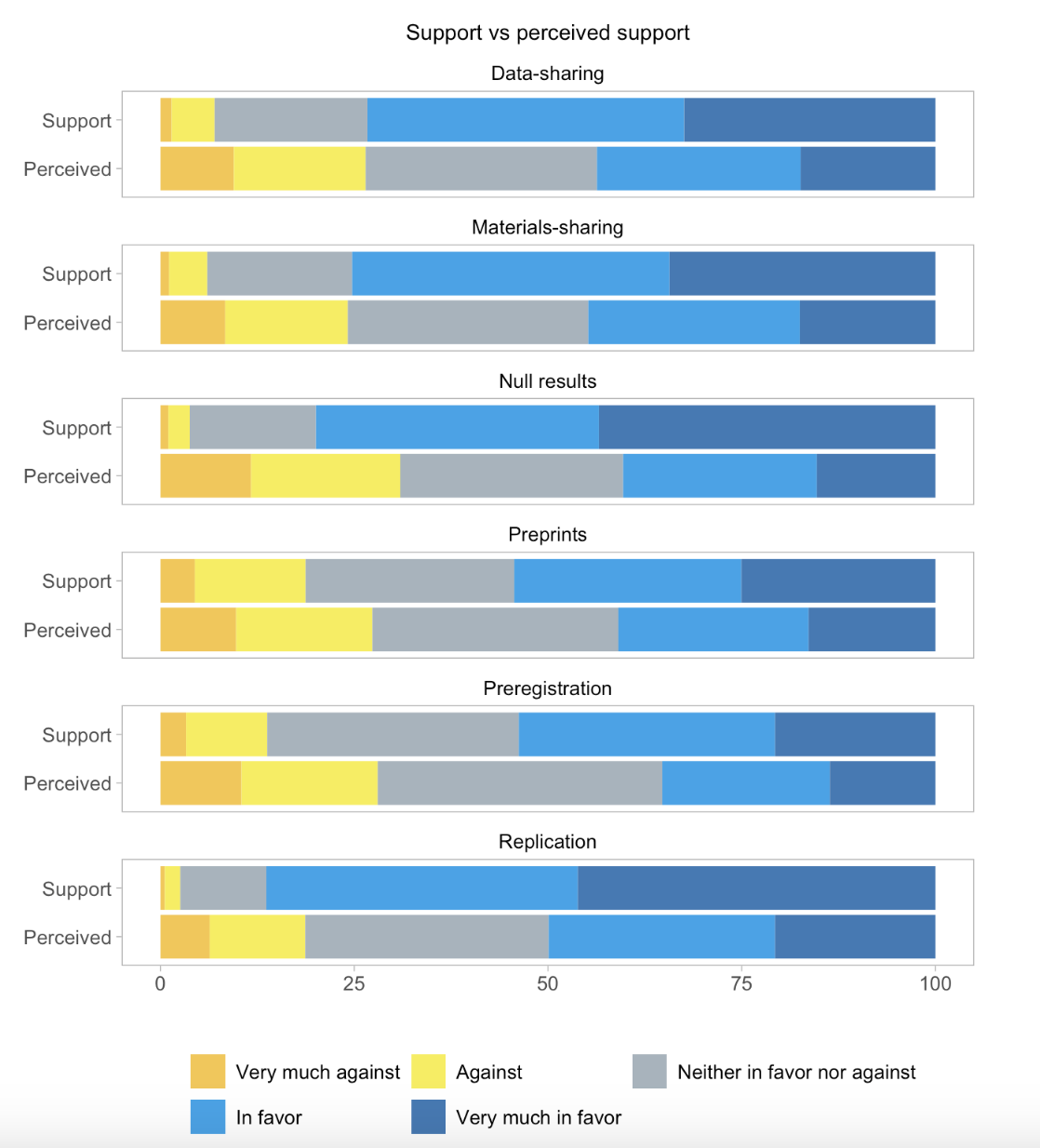 Emily White
Emily WhiteResearchers who perceive that open science is the expectation in their fields rather than the exception should be more likely to adopt open science practices themselves. This is borne out in COS’s research from the Open Scholarship Survey (OSS), a standardized, modular survey that assesses researcher norms about open scholarship practices, blockers to adoption, and perceptions about their fields and the scientific literature. COS finds that perceptions of support for an open science practice predicts how often a researcher performs that practice – over and above researchers’ own support.
If researchers’ perceptions of their fields predict their open scholarship engagement, then COS wants to know (a) how researchers perceive themselves relative to their colleagues; and (b) how accurate those perceptions are. The work with the OSS helps answer both questions. First, COS finds that across six open scholarship practices, most researchers perceive themselves to be more favorable than their fields. Conducting replications and reporting null results stand out among the set – in each case, well over 75% of respondents express greater support for the practice than what they perceive among their colleagues.

Second, COS find that across each practice, researchers underestimate support for open science practices. Reporting null results again stands out. While over 75% of respondents are supportive of the practice, less than half perceive their colleagues to be in favor. This perception gap stands as a barrier to open scholarship adoption.

Beyond revealing the perception gap, these data give research organizations and institutions direction to help promote open scholarship in the communities they fund and support. The OSS guides conversations with these change agents by revealing barriers that researchers themselves have identified. For example, researchers who have not recently shared data cite the absence of a suitable repository, challenges in anonymizing data, and their lack of familiarity with the process as barriers to the practice. This points to more targeted activities, such as training or offering an OSF Collection, that partner organizations can sponsor and facilitate to close the gap between the open behaviors that researchers support and their actual day-to-day practices, driving culture change.

6218 Georgia Avenue NW, Suite #1, Unit 3189
Washington, DC 20011
Email: contact@cos.io

Unless otherwise noted, this site is licensed under a Creative Commons Attribution 4.0 International (CC BY 4.0) License.
Responsible stewards of your support
COS has earned top recognition from Charity Navigator and Candid (formerly GuideStar) for our financial transparency and accountability to our mission. COS and the OSF were also awarded SOC2 accreditation in 2023 after an independent assessment of our security and procedures by the American Institute of CPAs (AICPA).
We invite all of our sponsors, partners, and members of the community to learn more about how our organization operates, our impact, our financial performance, and our nonprofit status.